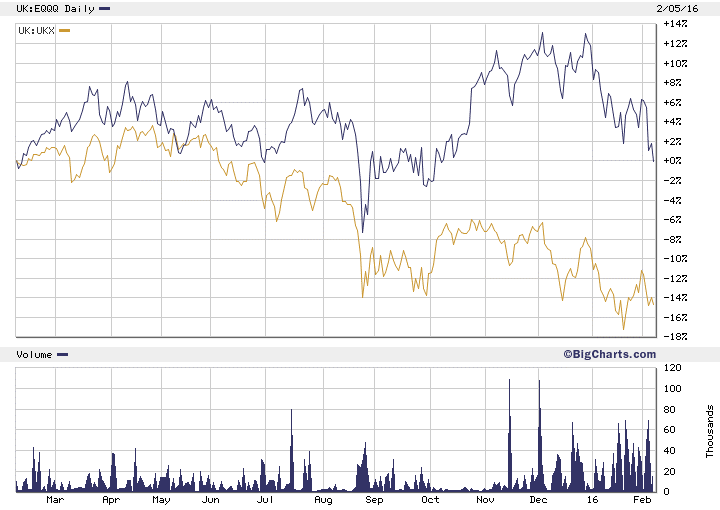Buying into the Millennial Generation: How to invest in Apple, Facebook and Microsoft
Sometimes, when talking to my teenage children, I get the feeling that we are from different planets. They seem to be far less interested in owning "stuff", and far more interested in "experiences", than I ever was at their age. This is a profound generational shift in the way people are consuming these days, and is starting to have a big effect on the economy and on the way we should invest in the stock market.
Millennials – the generation born between 1981 and 2000, so aged between 15 and 35 today – think and act quite differently compared to previous generations.
The First Digital Generation

They are the first truly digital generation, growing up surrounded by the internet, particularly the mobile internet on their smartphones, and thus accessible 24/7.
In the US, they are now the largest section of the population, numbering 83 million out of a total US population of 319 million (Chart 1). That makes them a very important demographic in terms of the total working population.
In the UK, 1 in 4 adults are drawn from this Millennial Generation, and will number as many as 17 million by 2019.
There are several key defining characteristics of millennials' behaviour to focus on:
1. They want instant gratification: "I want it now". This means that they put a big premium on ease, convenience and speed in their everyday transactions.
2. They trust their friends and social media more than companies: millennials are much more likely to listen to their friends and feedback on social media than traditional "experts" from academia or companies. This is evident in the widespread reliance on user feedback from websites such as Tripadvisor.com when booking hotel accommodation, and the ratings on amazon.com and eBay.
3. Social media has become the centre of millennials' universes, through websites such as Facebook, Twitter and apps such as Whatsapp.
Experience is the new status symbol
Market research highlights that experience is the new status symbol for this generation; 71% of millennials agree that "I would rather tell people about something I have done rather than something I have got".

What this means is that status symbols are changing; for instance, cars are no longer a status symbol for the majority of millennials. They are increasingly likely to make use of ride-sharing services like Uber and Lyft rather than own their own car.
Many of them have not even bothered to get a driving licence. Overall, are millennials driving less than previous generations? Answer: Yes. Personal car ownership is falling approximately 1% year on year for 17-29 year olds. In 2007, 42% of this age group owned a car where they were the main driver. This has now fallen to 36%. Bad news for the car-making industry, I would say.
They are not so worried about owning a house, and are thus much more likely to rent rather than buy. For them, being healthy and enjoying work is the new rich, rather than just having a large bank balance. Overall, healthcare is their biggest concern.
Did you know that since 1987 the share of consumer spending on live experiences and events relative to total U.S. consumer spending increased 70%?
Buying into the Millennial Generation: Tech, Travel and Sports
Buying into companies that provide these experiences is the key.
The first industry to benefit from this trend is technology, notably software and internet companies that provide the online and social media experiences that millennials crave. This is dominated by the obvious US technology names such as Apple, Google, Facebook and Amazon.
The easiest way to buy into these companies is via a convenient exchange-traded fund (ETF) such as the Powershares Nasdaq 100 UCITS ETF (code: EQQQ), an ETF priced in pounds sterling (current price per share: £68.52) and listed on the London Stock Exchange. This technology-focused ETF has beaten the FTSE 100 index hands down over the past year (Chart 2).
The largest holdings in this fund are:
- Apple (11.3%)
- Alphabet (Google; 9.5%)
- Microsoft (8.6%)
- Facebook (5.1%)
- Amazon (5.1%)
Secondly, you can buy into travel stocks as they benefit from the millennials' desire for new experiences. I would favour the low-cost airline sector as they continue see solid revenue growth from this client segment, including Ryanair (code: RYA), easyjet (EZJ) and Wizz Airlines(WIZZ).
Thirdly I would focus on the Millennials' combined desire for experiences and their focus on healthy living via sports; sports retailers such as JD Sports (code: JD.) and Sports Direct (SPD) should continue to see good top-line growth from this trend.
Edmund Shing is Global Head of Equity Derivative Strategy at BNP Paribas in London. He holds a PhD in Artificial Intelligence.
© Copyright IBTimes 2025. All rights reserved.




















